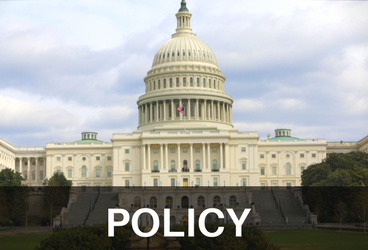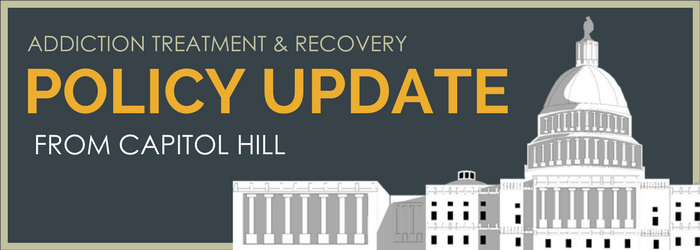
June 28, 2019 |
Addiction Policy Update – May 2019 to June 2019

HEALTH POLICY LEGISLATION
Committees
Substance Use Disorder Committee
On May 14th, the U.S. Department of Health and Human Services (HHS) announced the formation of an Interdepartmental Substance Use Disorder Coordinating Committee. The purpose of the committee is to coordinate national governmental efforts toward substance use disorder (SUD) research, treatment services, support, and prevention. This committee was formed in accordance with the SUPPORT for Patients and Communities Act that passed into law last October.
The committee will contain federal and nonfederal members. Federal members will include members of the Departments of HHS, Education, Housing and Urban Development (HUD), Justice, Labor, Veterans Affairs (VA), and White House staff. Nonfederal members will include SUD patients, state officials, research organizations, clinical practitioners, mental health experts, and more. More information about the committee can be accessed here.
Senate Judiciary Committee Hearing on Fentanyl Analogues
On June 4th, the Senate Judiciary Committee held a hearing entitled, “The Countdown: Fentanyl Analogues and the Expiring Emergency Scheduling Order.” A webcast of the hearing with full witness testimony and opening statements can be accessed here.
In an opening statement, the chairman expressed his support for legislation to codify the emergency scheduling order and emphasized the urgency of sending the right signal when it comes to fentanyl. A ranking member expressed her agreement with this urgency and called for a multipronged approach which would address the fentanyl issue as a public health problem to include prevention and treatment as solutions.
The hearing was short, with relatively bipartisan consensus from the committee to move forward with codifying the emergency scheduling order. Two members who were in attendance seemed willing to move forward, but did raise concerns about the lack of a representative from HHS at the hearing and access to schedule I substances for legitimate research.
Holly Strain and Carol McDaid of Capitol Decisions have generously provided the information used for this Policy Update.

